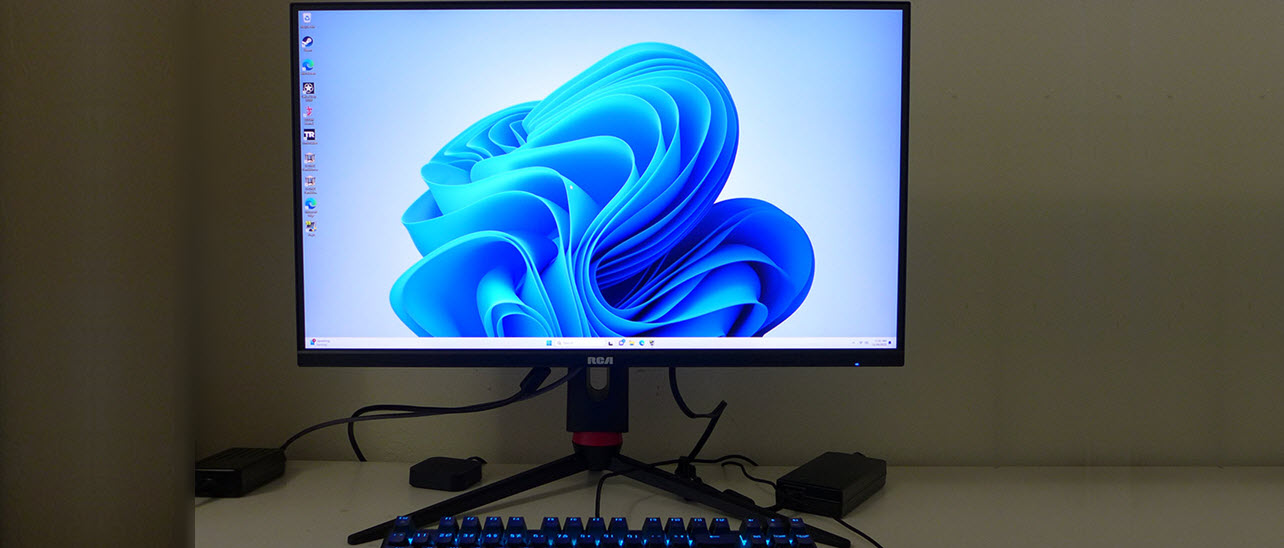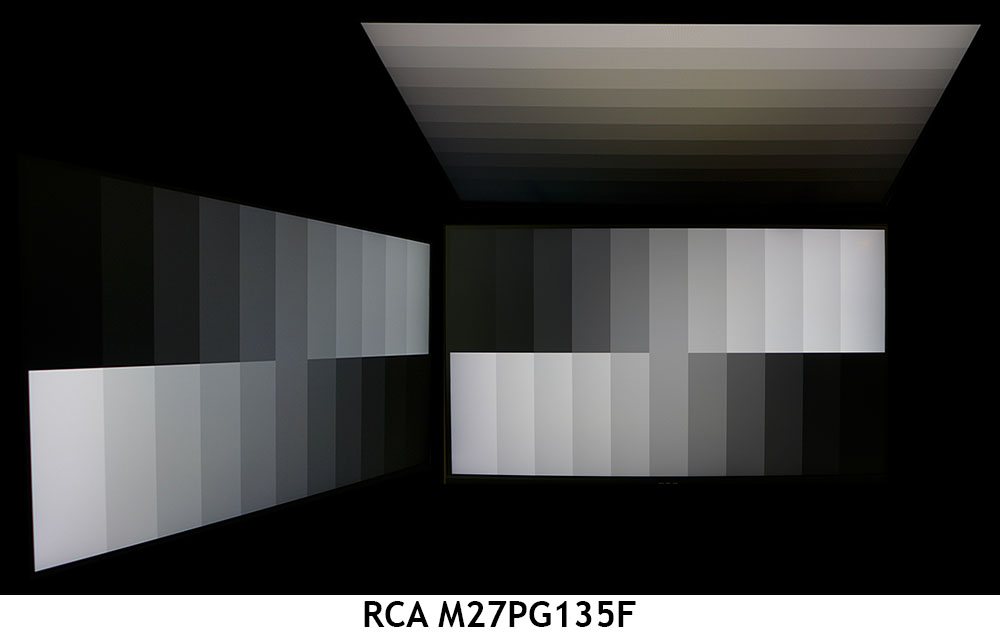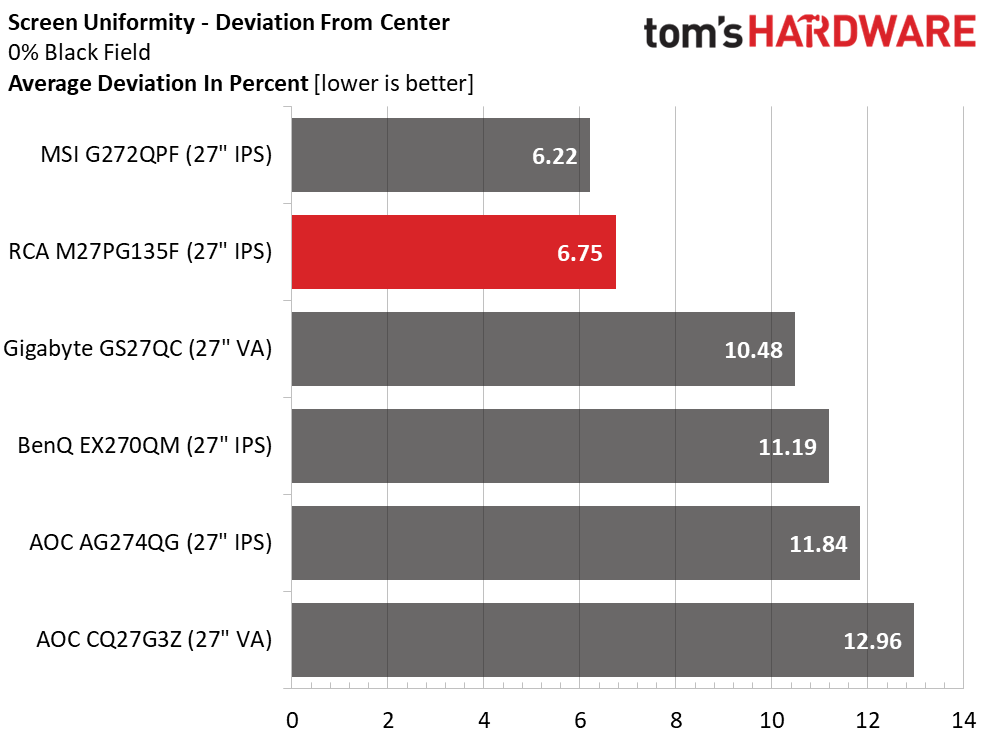Why you can trust Tom's Hardware
To compare the M27PG135F’s performance, I’ve rounded up a group of 27-inch QHD screens running at 240 and 170 Hz. We have BenQ’s EX270QM, AOC’s AG274QG and CQ27G3Z, Gigabyte’s GS27QC and MSI’s G272QPF. Obviously, you can save a few bucks with the lower refresh rate, but you’ll give up some motion resolution in the process.
Pixel Response and Input Lag
Click here to read up on our pixel response and input lag testing procedures.
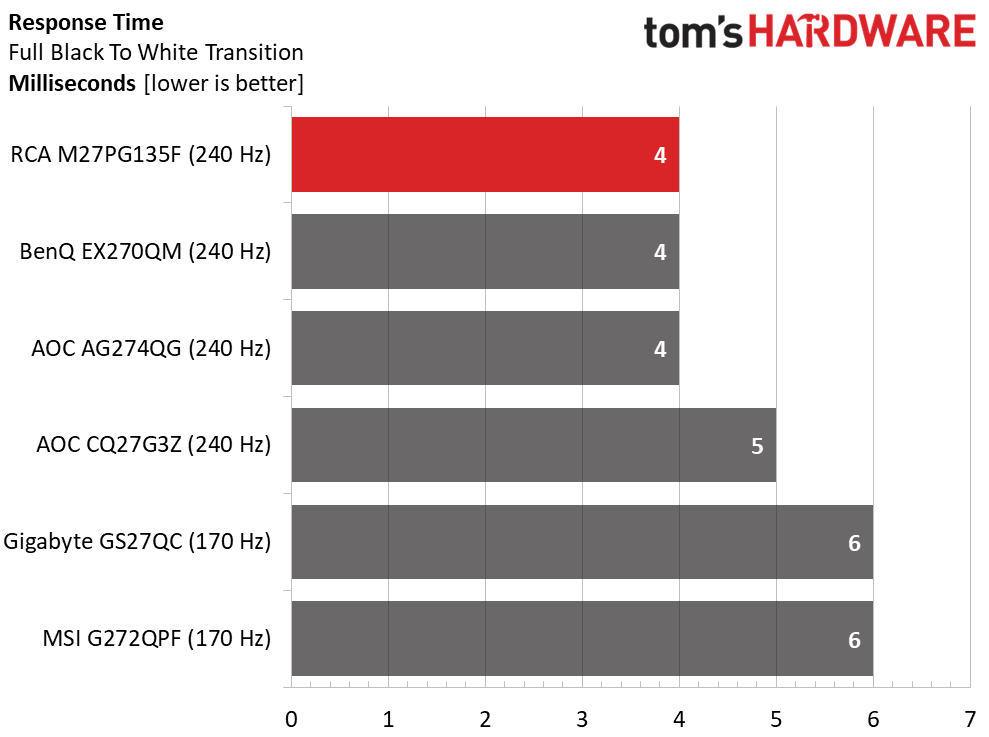
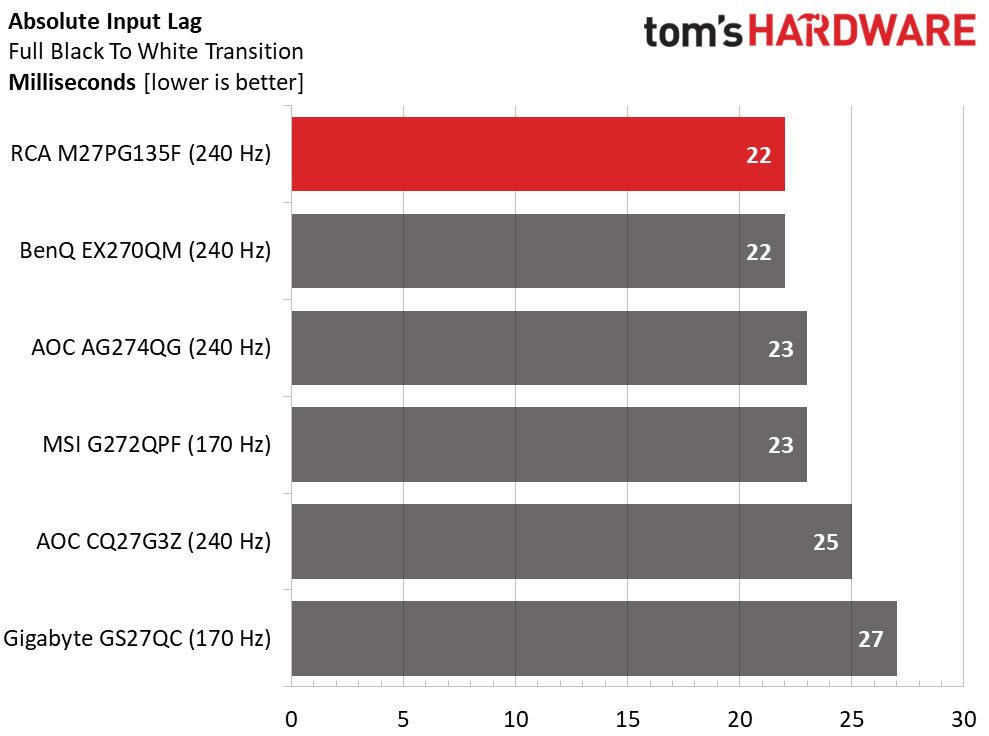
Four milliseconds is a gold standard for panel response. You only need a touch of overdrive compensation to eliminate motion blur at that speed. The M27PG135F nails this with a super-precise implementation. The Low setting is the sweet spot with high motion resolution and no trails behind moving objects. Input lag is also very low, with a combined score of just 22ms. It is one of the fastest screens I’ve tested, although 360 and 500 Hz will get you a little more speed.
Test Takeaway: The only way you’ll see better motion resolution and lower input lag than the M27PG135F is with a more expensive monitor. You can expect to spend double on the same-sized OLED. A 360 or 500 Hz display will cost more and have FHD resolution. Given these results, the M27PG135F easily justifies its price.
Viewing Angles
The M27PG135F has off-axis image quality on par with the best premium IPS panels. The side view is slightly cooler, but there is no appreciable light reduction. Gamma also stays consistent, so there is no loss of fine shadow and highlight detail. The top view is about 40% dimmer with a clear shift to green. This is excellent performance.
Screen Uniformity
To learn how we measure screen uniformity, click here.
The M27PG135F comes in well below my 10% threshold for black screen uniformity. That means there are no visible problems when viewing in a completely darkened room. Color is uniform from edge to edge as well. Gray and white fields are also visually perfect.
Get Tom's Hardware's best news and in-depth reviews, straight to your inbox.
MORE: Best Gaming Monitors
MORE: How We Test PC Monitors
MORE: How to Buy a PC Monitor
MORE: How to Choose the Best HDR Monitor
Current page: Response, Input Lag, Viewing Angles and Uniformity
Prev Page Features and Specifications Next Page Brightness and Contrast
Christian Eberle is a Contributing Editor for Tom's Hardware US. He's a veteran reviewer of A/V equipment, specializing in monitors. Christian began his obsession with tech when he built his first PC in 1991, a 286 running DOS 3.0 at a blazing 12MHz. In 2006, he undertook training from the Imaging Science Foundation in video calibration and testing and thus started a passion for precise imaging that persists to this day. He is also a professional musician with a degree from the New England Conservatory as a classical bassoonist which he used to good effect as a performer with the West Point Army Band from 1987 to 2013. He enjoys watching movies and listening to high-end audio in his custom-built home theater and can be seen riding trails near his home on a race-ready ICE VTX recumbent trike. Christian enjoys the endless summer in Florida where he lives with his wife and Chihuahua and plays with orchestras around the state.
